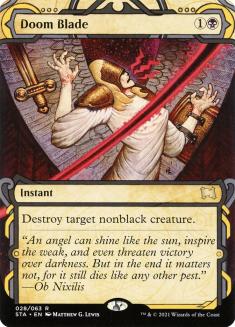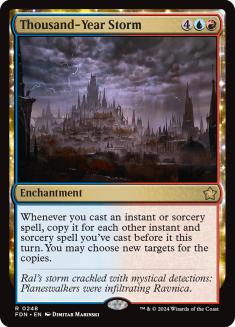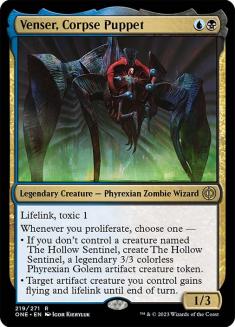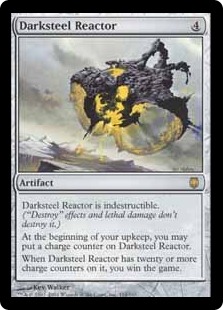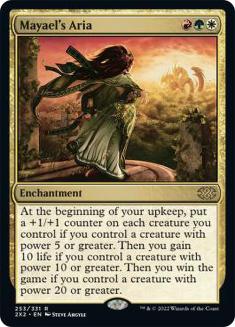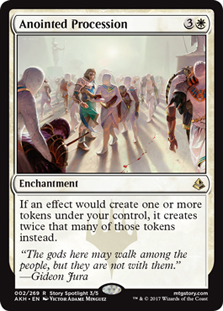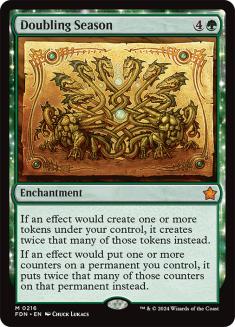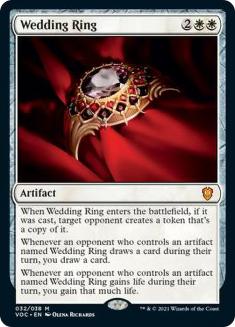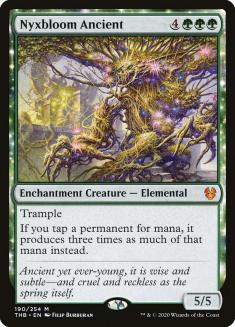Often when I build Commander decks on my channel, the term “win-more” comes up a lot in chat. “That card is too win-more.” Or “It feels win-more.”
It’s the sort of saying where new players don’t understand why it’s a bad thing. Having fun and winning are the two goals of games, after all. “Win-more?” They might ask. “Doesn’t everyone want to win more?”
Then again, do we as established players know what win-more means?
Win-More, Defined Once More
Win-more has become one of those buzzwords and phrases endlessly recycled in the discourse about cards’ design and their place in format. It lies in the realm of “It dies to Doom Blade,” “Run more removal,” and “This should be banned.”
We say it as a knee-jerk reaction to a newly printed piece that coats our Twitter timelines for a week or so. We say it without fully grasping the weight of it.
So let’s step back from that use, and give those two words and a hyphen weight once again.
“Win-more” most often describes a card that rockets a player further into victory when that player is already doing extremely well. The sheer excess often leads to feel-bad moments within a Commander pod. And because equitable gameplay and everyone’s enjoyment are valued just as much as achieving a victory condition in most games of Commander, “win-more” ultimately means that everyone wins less. The social contract at the core of Commander reframes the very idea of winning.
Why Players Fall for “Win-More”
If you’re already doing so well, why put down one of those spells? Why even run one?
As Commander players, I think we get drawn in by the allure of doing that big and exciting thing. This can go doubly for streamers. I am definitely guilty of committing overkill out of sheer excitement. Playing for the chat and creating memorable moments is what it’s all about. Commander is the format of zero creative limitations. That isn’t to say you can’t make extravagant plays in other formats, but in what other format can you cast multiple copies of Thousand-Year Storm?
Win-more isn’t exclusive to Commander, of course, though for this article, I would like to continue to relate it to my format of choice. So how does this particularly translate in Commander?
Win-more cards come in all shapes and sizes, taking on different forms depending on the deck you’re playing. For my Venser, Corpse Puppet deck, Darksteel Reactor felt incredibly win-more. If I already have upward of twenty instances of proliferate, ideally I should already be in a place of victory.
In a sense, playing a piece like that can feel as though you’re committing overkill in a pod of four pals playing a game. There have been instances when I have gotten caught up in the excitement and thrill of win-more pieces such as this. When looking at Commander specifically, win-more pieces are cards that feel gluttonous or excessive when not needed.
The tricky part is “when not needed,” because many supposedly “win-more” cards really aren’t – at least, not all the time.
When “Win-More” Isn’t
When researching for this article, I immediately began to search for examples of win-more pieces in Commander. I saw Crucible of Fire, Curse of Stalked Prey, Mayael’s Aria, and Atemsis, All-Seeing come up, but these felt… odd, more like supportive pieces, with two of them being alternate win conditions. They also felt slightly outdated. Are they even win-more if they’ve been powered out? Sure, alternative win conditions do win you the game, but they don’t fit the definition above.
When I sat down to try and come up with some more recent answers, I also felt a bit stumped. All that would come to mind were pieces like Dockside Extortionist or Zendikar Resurgent, but in actuality they are tools to give massive resource advantages. They can lead to explosiveness, but don’t lend themselves to the unnecessary nature of win-more. Does “win-more” even apply to casual Commander? Does it have any true meaning past the surface meaning we have given it?
So I naturally did what any article writer does when they have a block. I took to the most reasonable place in the world for answers: Magic Twitter. “This shouldn’t be so challenging for me to grasp,” I thought. Yet Twitter gave me somewhat similar answers. Extra-turn spells, Anointed Procession, Doubling Season; Lathril, Blade of the Elves; and Wedding Ring were some of the pieces detailed, but even then those didn’t feel quite right.
It’s Not Just a Card – It’s a Lifestyle
Then it hit me: the concept of a win-more card is even more nebulous than I had anticipated. It’s not a specific card, it’s an idea. Win-more is almost always contextual in nature, varying from case to case, deck to deck. When a card goes into a deck out of sheer power alone, regardless of how it synergizes with the theme, then it becomes a win-more card. This concept applies to the infamous Nyxbloom Ancient, a card that generates exorbitant amounts of mana. In certain decks, particularly X-cost decks or mana decks, it synergizes and flows with the theme. In other decks, it’s gluttonous. The card is not at fault. It’s how it’s played and the intent behind it.
So why were some cards thought of as win-more when they weren’t? This is also something I initially struggled with. When I was first tackling this concept, Old Gnawbone and Dockside Extortionist came to my mind; however, I can see now that they aren’t necessarily win-more. Instead, they give the player a massive advantage when it comes to resources. They propel you forward.
Oftentimes, I feel as though casual Commander players view a plethora of resources as fulfilling the parameters of win-more. The more resources you have, the more likely you are to win. You win more, so it’s win-more…right? I think this line of thinking is what initially created that barrier within my thinking. They don’t lead you to victory; they are more of a victory lap.
From Win-More to More Winning
I really want to emphasize that win-more pieces aren’t bad, though I think their perception has been tainted. There certainly isn’t anything wrong with playing win-more pieces. At the end of the day, it all boils down to the simple answer: the social contract. Discussing what type of game you want to play is key. In the beginning of this article, I said people play games for two reasons: to win and to have fun. Even if I lose, I want to have fun. However, I desperately want to be able to feel as though I meaningfully participated. When you have a game like Commander, can you balance that with winning?
Of course, I think the answer is yes. You can play to win, even explosively, and still follow that social contract, which is absolutely key. Playing to your pod’s level and creating an equitable environment is at the heart of Commander gameplay. Playing more or fewer win-more pieces doesn’t lead to the success or downfall of your game of Commander; it’s how you play that game and interact with others. You can be running the jankiest jank, alternative win conditions, or dozens of win-more pieces, but so long as you focus on the fun, everyone wins (even if they lose).
Beating Back the Buzzwords
I see the community often falling into the trap of using buzzword and buzzphrases. We tend to write off cards as being too good or deserving a ban, rather than analyzing or genuinely critiquing things. We tend to shout at one another rather than engage in healthy, constructive discourse. By taking the time to step back and challenge our terminology and what it really means, I hope to create a better vehicle for important discussions about impressive card design.
When it comes to the concept of win-more and design, what do you see as win-more? Do you agree with my analysis, and if not, what are some examples of cards you find to be win-more? Happy critiquing, deckbuilders!


